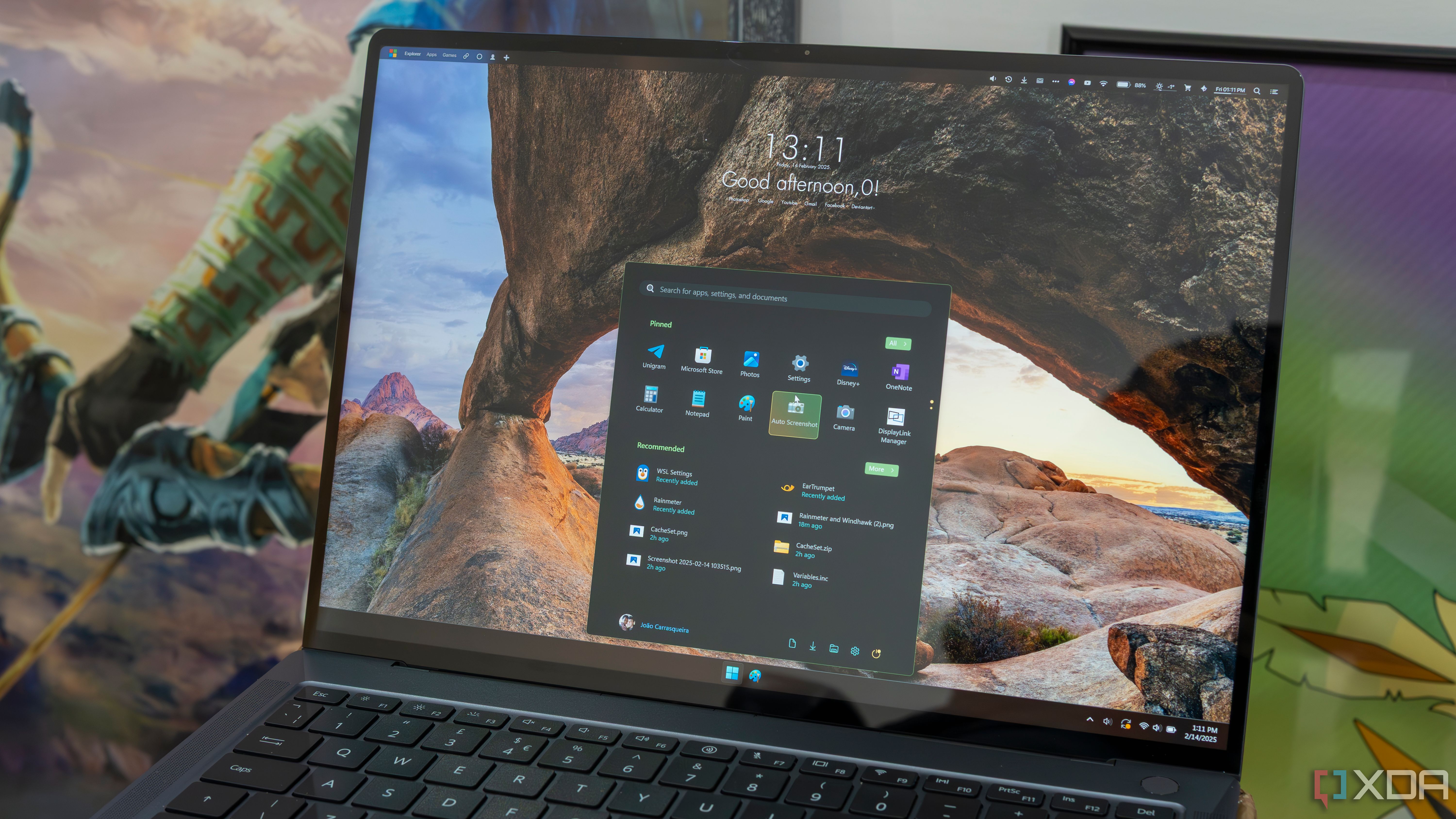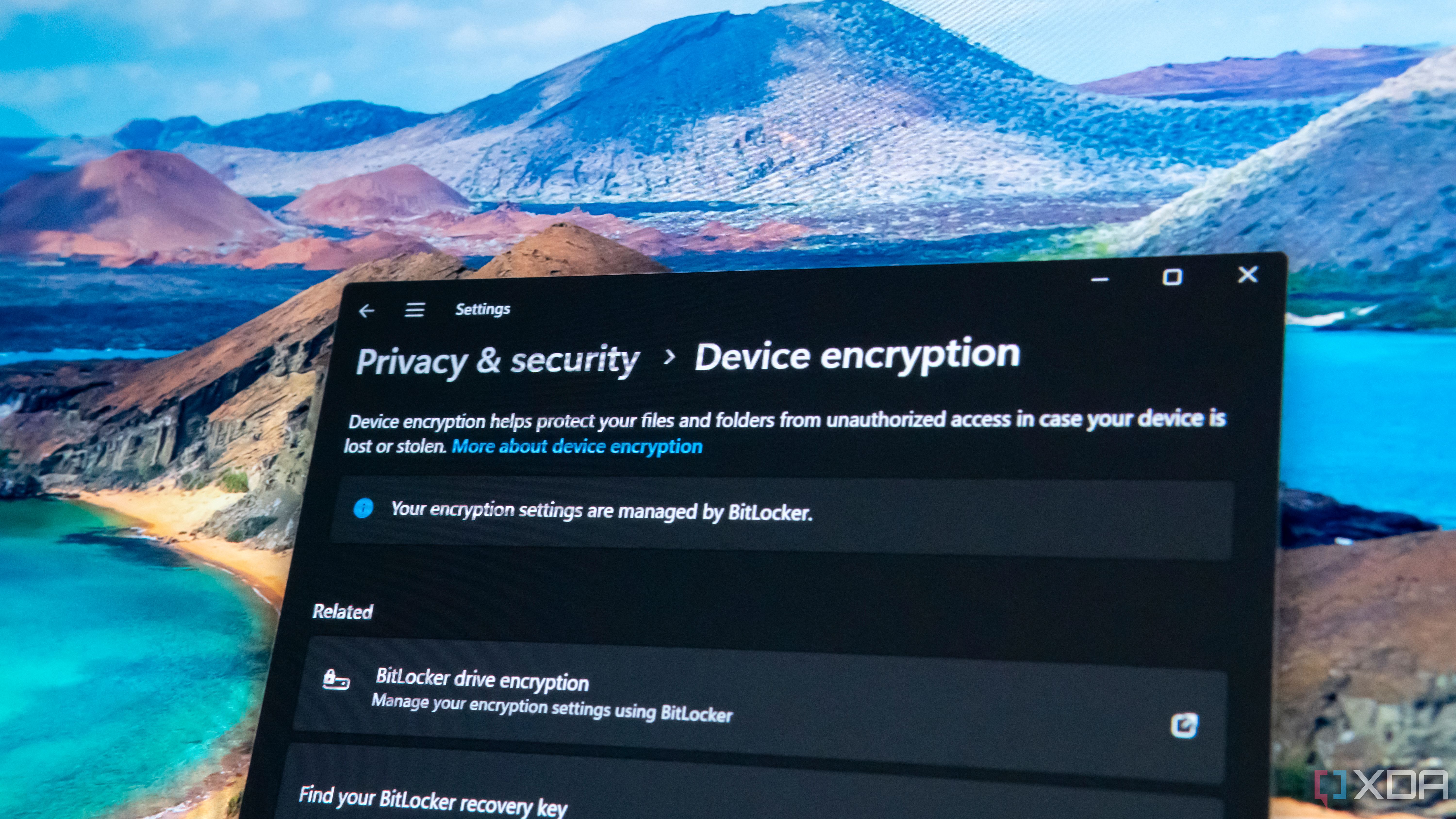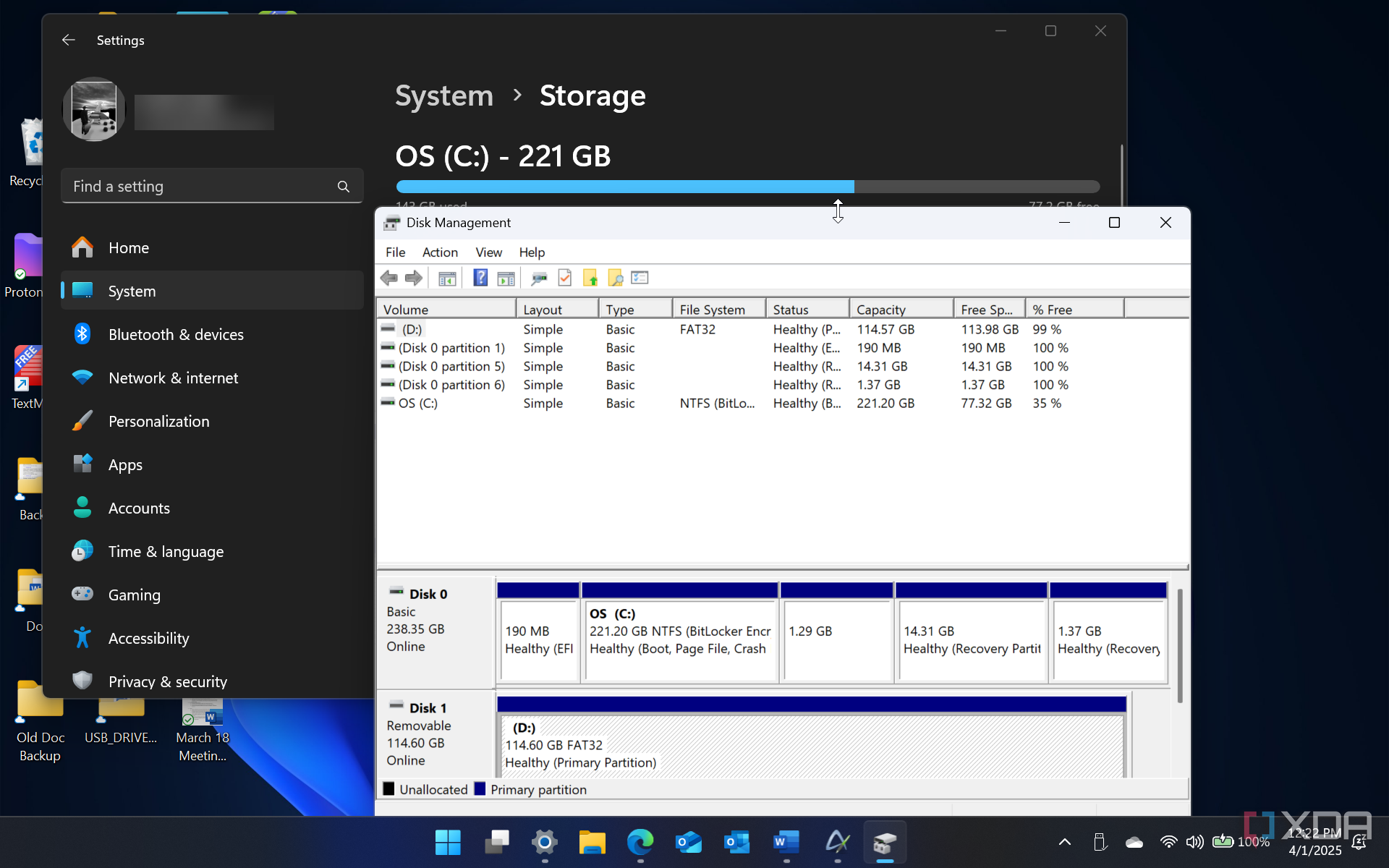Windows has been based around the NTFS file system for decades at this point, but outside of the Windows world, there have been a lot of developments with new file systems appearing here and there. And even in the Windows sphere, Microsoft has been cooking up ReFS for some time.
In many ways, these file systems can be preferable to NTFS, but the problem is, they don’t all play nice with Windows 11, at least not yet. Here are a few reasons why you might want to stick with NTFS for your Windows installs for now.

Related
What does Microsoft’s new ReFS file system mean for Windows?
ReFS is coming… or is it?
3
Stability issues
ZFS and Btrfs are not officially supported on Windows
ZFS and Btrfs are two file systems that have gained a bit of traction in the Linux world, and a few users have been tempted to use these file systems in dual-boot scenarios due to some of the advantages they have over NTFS. The problem is Microsoft doesn’t seem interested in supporting these operating systems natively, and the implementations that exist are far from perfect. The ZFS and Btrfs drivers for Windows are not official, they’re developed by the community, which means they don’t have the resources to provide the full extent of support you’d expect.
Looking at Reddit, you’ll see users reporting cases of frequent crashes with File Explorer and even some blue screens of death. The projects supporting these file systems on Windows are still actively worked on, but you’re taking a big risk using these file systems with Windows in the long run.

Related
What does Microsoft’s new ReFS file system mean for Windows?
ReFS is coming… or is it?
2
Performance may not always be as good
NTFS is still the most optimized for Windows
The lack of optimization for file systems other than NTFS also means performance can suffer if you switch to one of these systems. I personally tested installing Windows 11 on an ReFS partition a few days ago and found overall disk performance to take a fairly significant hit according to CrystalDiskMark measurements. ReFS can provide much faster speeds in specific scenarios, but running Windows off of it is not an ideal approach. Here’s a rundown of the results I got:
|
NTFS |
ReFS |
Difference (%) |
|
|---|---|---|---|
|
Read SEQ1M Q8T1 |
3104.32 |
2532.06 |
-18.43% |
|
Read SEQ1M Q1T1 |
1516.51 |
1192.76 |
-21.35% |
|
Read RND4K Q32T1 |
594.84 |
546.07 |
-8.2% |
|
Read RND4K Q1T1 |
57.91 |
49.27 |
-14.92% |
|
Write SEQ1M Q8T1 |
1801.75 |
1711.52 |
-5.01% |
|
Write SEQ1M Q1T1 |
1307.65 |
1203.62 |
-7.96% |
|
Read RND4K Q32T1 |
510.72 |
442.34 |
-13.39% |
|
Read RND4K Q1T1 |
166.38 |
163.52 |
-1.72% |
And much like ReFS, you can find reports of worse speeds when using Btrfs on Reddit, too. This is just a natural consequence of things not being natively supported or properly optimized, but hopefully ReFS will get better since Microsoft is supporting it. It’s just not quite there yet.

Related
I tried installing Windows on an ReFS drive, and I actually don’t hate it
Windows 11 can run on an ReFS drive now, but is it worth it?
1
Some features may not be supported
NTFS has had time to mature
Finally, it’s worth noting that some features you may be used to with NTFS aren’t necessarily supported with unofficial and unfinished implementations of other file systems. For example, ReFS has a few features that, according to Microsoft, still aren’t supported on Windows 11.
Microsoft hasn’t properly updated its documentation in a while (it still says ReFS isn’t bootable) but you can find other issues that do still apply. ReFS can’t be used for portable media, and it doesn’t support file system and encryption features that you can use with NTFS. That’s not to say you can’t encrypt your data, of course; BitLocker is still supported. But NTFS has a feature called Encrypting File System, or EFS, which enables per-file transparent encryption. There are also features like extended file attributes and disk quotas still missing.

Related
5 tips for setting up BitLocker on Windows to secure your files
Use BitLocker the right way
Will Windows ever be suited for these file systems?
As it stands, Windows simply isn’t ready to be used with these newer file systems. NTFS has been around for a long time and has been optimized and polished over the last three decades, which makes it hard to replace completely. That being said, Microsoft has been making good progress with ReFS, so there’s a good chance we’ll see it take over at some point.
As for ZFS and Btrfs, it’s harder to say. Microsoft doesn’t seem all too interested in supporting these file systems, and it’s not exactly surprising. Maybe the community efforts to get proper Windows support will pay off eventually, but we’re not there yet.














